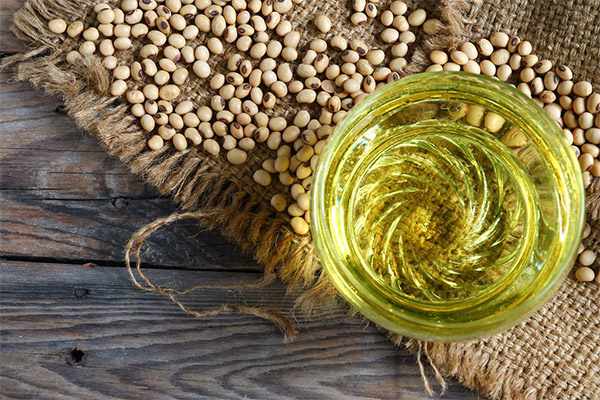Shift wheat acreage in Punjab, Haryana to oilseeds: SEA

SEA said that MSP-driven production of wheat and rice in Punjab and Haryana has created huge anomalies and imbalance by way of huge oversupply vis-à-vis demand.
The Solvent Extractors’ Association of India (SEA) has suggested to the Centre to shift the acreage from grains to oilseed crops in the States such as Punjab and Haryana.
In its ‘Pre-budget memorandum for vegetable oils and oilseed sector for 2022-23’, SEA said that MSP-driven (minimum support price) production of wheat and rice in Punjab and Haryana has certainly assured a ready market and good returns to the farmer. However, it has created huge anomalies and imbalance by way of huge oversupply vis-à-vis demand.
Stating that mountains of wheat and rice are challenging the storage infrastructure, BV Mehta, Executive Director of SEA of India, said, “It is absolutely necessary to divert some land in Punjab/Haryana from wheat/rice cycle to soya-sunflower-maize in kharif season and to rapeseed in rabi season.”
Rape-mustard is a rabi crop, and its encouragement would mean lower wheat acreage. It is a win-win situation to lower the supply of wheat and increase the supply of high oil-bearing mustard, he said, adding, this would help curtail the depleting ground-water and straw burning.
Around 60 lakh hectares of land is earmarked for wheat cultivation between Punjab and Haryana. “Assuming we are able to shift 50 per cent of the available land to mustard in the next two-three years, through better incentives for shifting, the additional available crop would be 60 lakh tonnes (lt) of rape-mustard, which translates to a whopping 25 lt of additional oil,” he said.
Congratulating the government for announcing the allocation of ₹11,000 crore for NMEO-OP (National Mission on Edible Oils – Oil Palm), the memorandum sought the inclusion of mustard, groundnut, soyabean in NMEO with an allocation of at least ₹5,000 crore per annum. This will help narrow the gap between domestic demand and production of edible vegetable oils.
Uniform import duty
Seeking uniform duty for the import of crude edible oils, the pre-budget memorandum said the effective duty (including agri cess and social welfare cess) on crude palm oil (CPO) is 8.25 per cent, and on crude sunflower oil and crude soyabean oil is 5.5 per cent.
India is importing CPO, crude soya oil, crude sunflower oil and crude rapeseed oil to bridge the gap between demand and supply. There is a great shortage of rapeseed-mustard oil in the country leading to sky rocketing of its prices beyond the reach of the poor.
The memorandum suggested that effective import duty on crude rapeseed oil be brought in line with other crude edible oils at 5.5 per cent which will augment the overall supply of rape-mustard oil and cool down its market prices.
SEA appealed to the government to not extend the date for import of RBD palmolein under ‘Free’ category beyond December 31, and urged the government to place it under ‘Restricted’ category. All other refined edible oils should be placed under ‘Restricted’ category so that domestic refining capacity is better utilized, it said.
Batting for the introduction of GM (genetically modified) oilseed crops, the pre-budget memorandum said this could also be one of the ways to increase production in the country, as the productivity can be raised by 15-20 per cent. Indigenous GM mustard is already developed under oilseeds category, and this must be released at the earliest, it said.
Highlighting the need to increase the use of non-traditional sources of oil, the memorandum said the an economic-climate should be created for exploring full potential of various non-traditional sources of edible oils to augment the domestic edible oil availability.
Exploring full potential of rice bran oil, cottonseed oil, maize oil and other minor oils could add almost a one million tonnes to the edible oil pool in the next five years.
The memorandum said the rice bran oil (current production is at 10 lt) could be increased by 3 lt; cottonseed oil (12 lt) by 3 lt; maize-corn oil (1.3 lt) by 0.5 lt, and tree-borne oilseeds and others (0.5 lt) could be increased by 2.5 lt with such a move.
Seeking private participation in oilseeds extension programme, the memorandum urged the government to grant higher weighted income tax deduction of 200 per cent to companies undertaking oilseeds extension programme. This will supplement government’s efforts and will go a long way in increasing oilseeds production and productivity in the country.
Read also
Wheat in Southern Brazil Impacted by Dry Weather and Frosts
Oilseed Industry. Leaders and Strategies in the Times of a Great Change
Black Sea & Danube Region: Oilseed and Vegoil Markets Within Ongoing Transfor...
Serbia. The drought will cause extremely high losses for farmers this year
2023/24 Safrinha Corn in Brazil 91% Harvested
Write to us
Our manager will contact you soon



